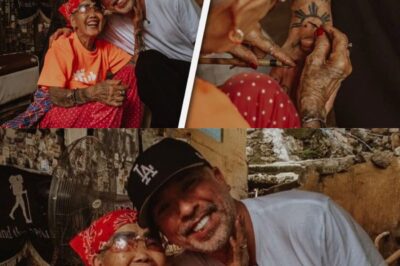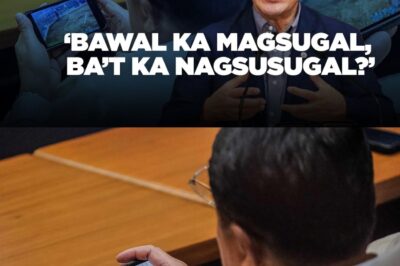MANILA, Philippines — In a moment that caught the nation by surprise, President Ferdinand Marcos Jr. stirred both laughter and intrigue during his fourth State of the Nation Address (SONA) on July 28, 2025. Amid a list of celebrated Filipino athletes like Manny Pacquiao, Hidilyn Diaz, EJ Obiena, and Nesthy Petecio, the president made an unexpected and cheeky mention of “our new champion kampeon, PNP Chief Nic Torre.” It was a remark that instantly became one of the most talked-about highlights of the address.

The story behind this SONA moment goes deeper than a passing joke. General Nicolas Torre III, chief of the Philippine National Police, recently found himself at the center of a bizarre political spectacle involving none other than acting Davao City Mayor Sebastian Duterte, son of former President Rodrigo Duterte. What started as an offhand challenge from the younger Duterte escalated into a highly publicized boxing match that was never meant to be—at least, not according to Duterte’s later claims. But Torre took it seriously, accepted the challenge, and even proposed turning the event into a charity fundraiser for communities devastated by recent typhoons.
When the big day arrived, the venue—Rizal Memorial Coliseum—was ready, and Torre was in the ring. But Sebastian Duterte was nowhere to be found. As a result, Torre was declared the winner by default. The absence of his opponent didn’t just give Torre a technical victory; it gave him the narrative. In a press conference at Camp Crame, Torre did not hold back. He labeled Duterte a “bully and a coward,” declaring, “We stood up to the bully. The bully ran away—and this is not the first time the bully ran away.” The tone was not just personal but political, making it clear that this boxing match was never just about fists.
President Marcos saw an opportunity to tie this moment into his broader message about youth development, fitness, and public health. He framed Torre’s victory, albeit default, as part of a larger story—one where Filipinos, including public officials, are engaging in sports and promoting healthy lifestyles. The president’s sports agenda includes a national push for fun runs, Zumba sessions, aerobics, and opening public parks and fields for recreational use. He emphasized car-free Sundays, already adopted in major cities like Metro Manila and Baguio, and declared that track and field facilities in Pasig, Manila, and Baguio would be open to the public for jogging and fitness activities. Marcos also pledged more support for grassroots sports programs, including the upcoming Palarong Pambansa and Batang Pinoy Games in General Santos City. He underlined the need to revive school-based sports clubs and organize intramurals in all public schools.

Amid all this, Torre’s “boxing win” may have started as political theater, but it transformed into a success story of a different kind. The charity event raised nearly ₱20 million in cash donations and another ₱5 million worth of goods such as canned food. All of these were distributed to victims of recent typhoons. Even without an actual fight, the impact was real and measurable.
The context makes Torre’s SONA mention more than just comic relief. It was a calculated highlight, injecting levity into a serious speech while reinforcing the president’s themes of discipline, public service, and sportsmanship. Torre’s unexpected moment in the national spotlight also gave the Marcos administration a symbolic victory over one of the country’s most polarizing political dynasties. The mention sparked debate—some found it amusing, others criticized it as a distraction from more pressing national issues. But no one could deny that it hit the headlines and stuck in people’s minds.
The Sebastian Duterte angle added another layer of complexity. After publicly saying Torre would get beaten in a fight, he later backpedaled in a vlog, claiming he never issued a formal challenge. He went so far as to condition the bout on President Marcos requiring all elected officials to undergo drug testing—a demand critics called unrealistic and diversionary. Whether this was a tactical retreat or a miscalculated bluff, it left Torre standing alone in the ring and claiming a symbolic win.
In the world of politics, perception is often more powerful than action. Torre, whether by strategic maneuvering or sheer circumstance, positioned himself as a public servant ready to face confrontation head-on. His calm acceptance of the challenge, the charitable twist he added to the event, and his composed response in the aftermath helped shape an image of leadership, in contrast to what he characterized as cowardice on the other side.

This incident, punctuated by a SONA moment that few saw coming, highlights the peculiar ways in which politics and public perception collide in the Philippines. In a country where drama often spills from the political arena to the boxing ring and back, Torre’s victory—however unconventional—resonates as a story of confidence, readiness, and public service.
Whether Torre is remembered as a real boxing champ or simply as a clever political player remains to be seen. But what’s certain is that his name, and the strange circumstances of his victory, will linger in the headlines and conversations long after the echoes of applause from SONA 2025 fade away.
In the end, Gen. Nic Torre’s surprise mention was more than a punchline. It was a punch with purpose—and one that may have landed harder than anyone expected.
News
Secret No More: Gerald Anderson and Gigi De Lana’s Private Wedding in Batangas Breaks the Internet – Here’s What You Missed!
Did Gerald Anderson and Gigi De Lana just get married in secret? Yes — and the internet can’t keep calm….
“She Was Gone for Minutes”: Mona Alawi Found Unconscious, Ivana Alawi in Tears – What Really Happened?
In a moment that shocked fans across the globe, Mona Alawi, the beloved younger sister of actress and YouTube star…
Hanggang sa Muli, Mahal Kita’: Why Rufa Mae Quinto’s Heartbreaking Farewell to Her Husband Is the Story You Can’t Ignore
Filipino actress and comedienne Rufa Mae Quinto is grieving the unexpected passing of her estranged husband, Trevor Magallanes, and the…
Jo Koy Blessed by Tattoo Legend Whang-Od: The Viral Moment Everyone’s Talking About!
Why did Jo Koy travel all the way to the remote mountains of Kalinga? What really happened during his visit…
Caught Red-Handed: Congressman Busted Watching E-Sabong During House Session – Tulfo Weighs In!
In a moment that sent shockwaves through the online community and the halls of Philippine politics, a congressman was caught…
Claudia Barretto Breaks Silence: The Real Reason Behind Julia and Gerald’s Breakup – You Won’t Believe What She Revealed!
When celebrity couples part ways, the public is often left in the dark—guessing, speculating, and waiting for answers. But not…
End of content
No more pages to load












